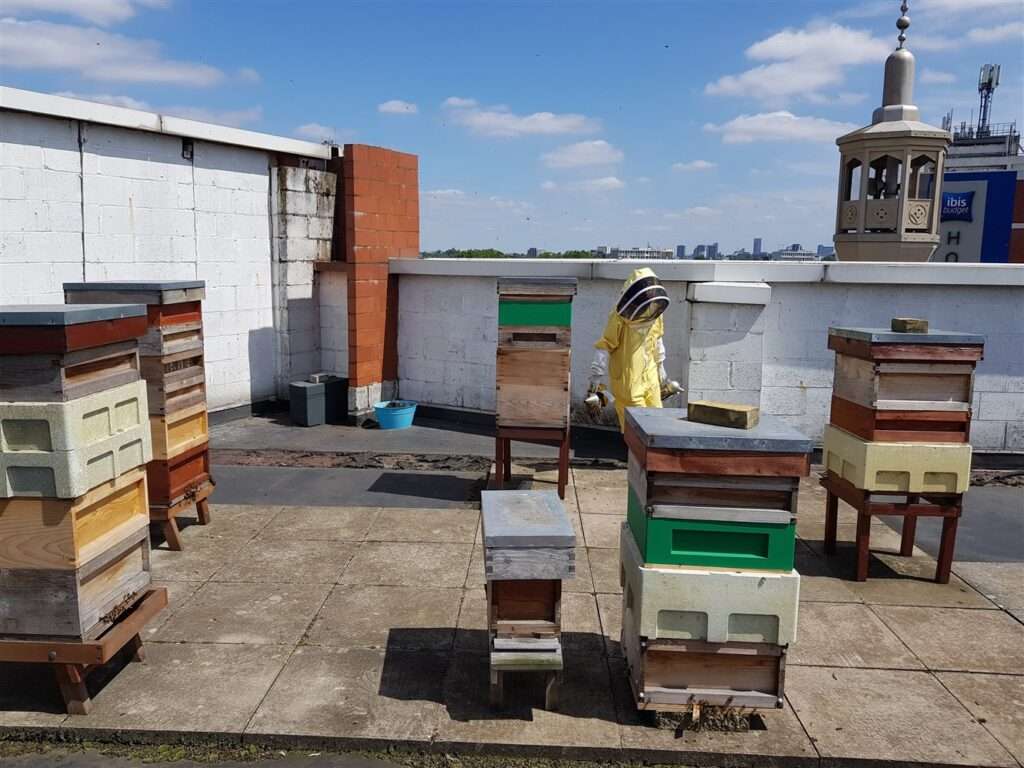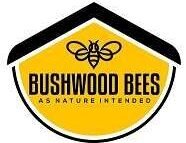What do you need to consider before starting beekeeping?

Why keep bees?
Beekeeping can be a very rewarding craft. Many take up beekeeping to support our pollinating insects, many others for the honey, some for the great social aspects it brings, and others for the joy it brings in getting back in touch with mother nature. Whatever your reasons you should carefully consider if you have both the time and budget to dedicate to this craft. We also highly recommend you attend a beekeeping course before making any purchases and join your local beekeeping association.
Beekeeping Course
Beekeeping is a practical skill and requires looking after livestock. Before undertaking this enjoyable endeavour its advisable to attend a beekeeping course. We run a limited number of hands on professional courses each year in London (E1) where you will learn all the practical and theoretical skills required – See our beekeeping course page for further details.
Time required for beekeeping
Beekeeping is not just about having a hive at the bottom of the garden and collecting some honey once or twice a year. When you keep honey bees, you become an owner of livestock, with the responsibilities it brings – to the bees and to your neighbours. To keep the bees healthy you must practice good animal husbandry and, to prevent annoyance to neighbours, you must manage the bees swarming instincts.
Like any other forms of livestock, honeybees are subject to attacks from pests and may suffer disease. Being a beekeeper requires a commitment to give time to the bees, especially between April and July inclusive when regular inspections need to be carried out.
Throughout the summer the bees will collect and store nectar and periodically require additional space be provided. The processed nectar will also need to be removed as honey. In the early autumn, the bees may need to be fed to ensure there is enough food for the colony to survive the winter up until the following warm Spring.
To be a beekeeper there is also a financial commitment. You should join your local Beekeepers Association as soon as possible and be mindful of the initial set up cost (likely in the region of £400 (excluding beekeeping course and bees) with further costs of up to a further £400 in the first few years depending on the form of beekeeping you adopt)
Before any of this is undertaken, it is vital to find a location to keep your bees. The site needs to be safe, free from the risk of vandalism and sited in a location to avoid problems for neighbours and the general public. If you are going to keep bees in your garden it will need to be big enough so they are not flying in or out of the hive at head height and ideally (although not strictly necessary) you should aim to face the hive SE – SW so they catch the early morning sun
Once a location has been found, the next step is to procure some bees. Purchasing a “nucleus” of bees on their frames (i.e. a small colony) is a popular way to start but at a cost of around £200 – £250. We highly recommend UK honey bees are purchased as these are more adapted to our local climate and there we lessen the risk of bringing in additional disease / pests.
Beekeeping books
Its always a good idea to read some beekeeping books before deciding to start. The below are recommended. We provide the Bee Manual to students on our beekeeping course.
The Bee Manual – Haynes by Claire & Adrian Waring. This is an excellent manual for beginners. It provides a complete and easy-to-follow reference book with clear instruction and plenty of excellent illustrations. Many find it the book they turn to again and again in their first years of beekeeping.
Guide to Bees and Honey by Ted Hooper. A good reference book with useful technical content that will serve beekeepers for many years.
Practical Beekeeping by Clive de Bruyn. This well-written book is a comprehensive guide to all aspects of bees and their management. Good summaries for each chapter. Useful tips for both beginners and more experienced beekeepers. Good photographs and drawings but is likely to be more expensive than the other books.
More details on other books and leaflets will be given during the course.
Bees and Beekeeping Overview Video
The below video was a presentation we did on Bees and Beekeeping – its quite long but good to watch if if you wish to take up beekeeping or wish to understand a bit more about these fascinating creatures.
Beekeeping Equipment List
The below represents the basic equipment required. Some beekeeping suppliers have been named based on past positive experience, however, do search around as bargains can be had. However do remember not all equipment is built the same, it is highly recommended to spend a bit more on a quality bee suit, hive tool and smoker as these items are used at each inspection. A good suit will give confidence
| Item | Quantity |
| National Floor | 1 |
| National brood box | 1 |
| Frames for National brood box (DN4) | 11 |
| Foundation for National brood box (wired worker foundation) | 11 |
| National Brood box Dummy board (BS Deep from Thorne) | 1 |
| National Queen excluder (Framed and wired) | 1 |
| National Supers | 3 |
| Frames for National Super (SN1 if super has castellations or SN4 if runners) – 10 or 11 per super depending on super type | 30 |
| Small hammer and box of challenge 19mm gimp pins for frames | 1 |
| Foundation for National brood box (wired worker foundation) | 11 |
| 5 or 6 Frame Nucleus of Bees on National Frames | 1 |
| Full-length bee suit (BBwear or Sheriff are best) | 1 |
| Long-cuff nitrile Gloves | |
| Hive Tool – Jerro from Park Beekeeping | 1 |
| Jet Lighter | 1 |
| Smoker (Dadant from Thornes or National Bee supplies, Lega from Park Beekeeping is also good) | 1 |
| Smoker Fuel (can buy or use dry punk wood, etc) | 1 |
| Bucket for Wax scrapping (fishing boxes are good for this) | 1 |
| Bucket for Washing Soda (fishing boxes are good for this) | 1 |
| Soda Crystals (for cleaning suits and for washing hive tools) | 1 |
| Nucleus Box for swarm control (BS Honey Bees) | 1 |
| Frames and foundation for BS Nucleus Box | 6 |
| Ansell Touch n` Tuff Long Cuff Nitrile Gloves (www.justgloves.co.uk) | 1 |
| Feeder (English Feeder from Thorne) | 1 |
| English Feeder Eke (from Thorne) | 1 |
| Apiguard Varroa Treatment (for Autumn Treatment) – 2 trays per treatment | 2 |
Beekeeping Resources
Suppliers
| Item | Web Site |
| Beekeeping course | Bushwood Bees Beekeeping Courses |
| Equipment supplier | Thorne |
| Nucleus Box | BS Honey Bees |
| Beekeeping Suit | BBWear |
| Beekeeping Suit | Sheriff |
| Foundation | Kemble |
| Nitrile Gloves | Pronto Direct Ltd |
| Gloves | A1Disposables |
| Nucleus of Bees | Bushwood Bees |
| Bee Manual | The Haynes Bee Manual |
| Bee Blog | The Apiarist |
| Videos | Norfolk Honey Co. |
If you have any comments, suggestions or questions then feel free to send us a message using the below form.
[wpforms id=”1071″ title=”false”]

Thanks for your information, I’m a true beginner
Hi Joan, glad you found the blog informative. If you need any advise doubt hesitate to ask. It’s a great hobby which in sure you will love…